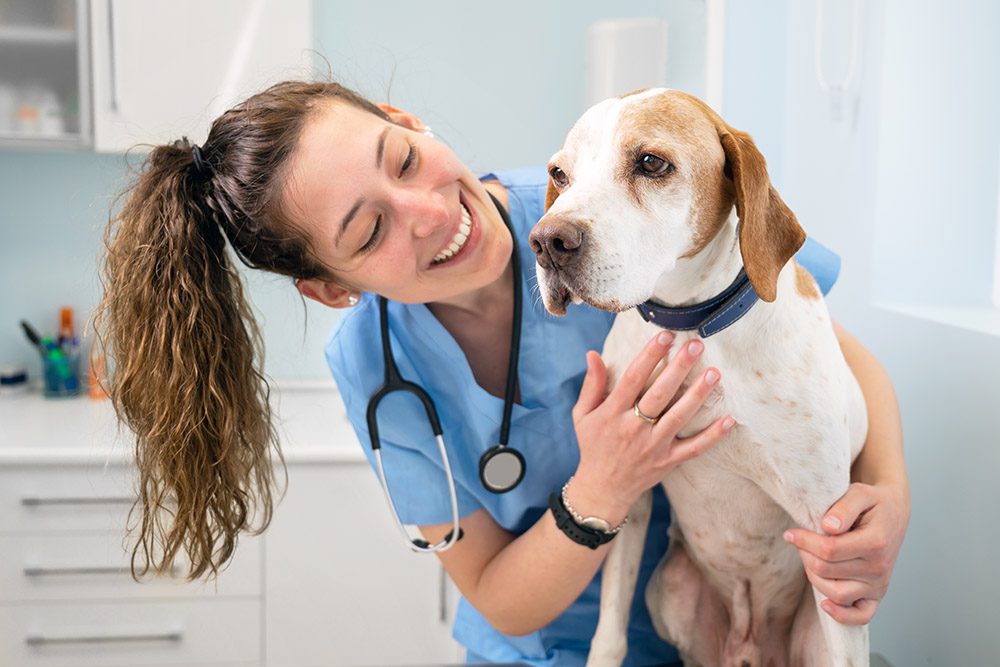So, you’re in vet school and graduation is looming over you. You know that you need to start thinking about the next steps for your professional life but you aren’t sure in which direction you want to go. You’ve heard the back and forth argument about whether or not a veterinary internship is valuable. Some say that it is, some say that you don’t need it. So, what’s the best choice for you?
Doing some Google research on veterinary internships is only surface level. It’s hard to determine what you will actually experience through these programs without going through it yourself, right? We want to give you an inside look at paid veterinary internships, questions you should be asking and things you should be looking for in order to get the best experience possible.
The Opportunity Should Outweigh the Cost
Making sacrifices is part of life. We all have to make sacrifices in one way or another to move forward and grow. But sacrificing your personal life and mental health are two things that you should really steer away from when you’re looking for veterinary internship opportunities.
While interviewing for the best paid veterinary internship, consider asking questions about how much the company values work/life balance and mental wellness. Just because you’re a veterinary intern does not mean that your personal time and mental health isn’t important. Learning and growing in your profession shouldn’t mean that your personal life falls to the wayside. You have to take care of yourself.
The best veterinary internship programs understand that burnout is real in the veterinary profession. Being proactive and taking care of these individuals from the start creates a better learning environment and opportunity for future success not only for the veterinary intern but for the company as well.
Ask These Questions:
- Will I receive PTO? And actually be able to use it? At this stage in life many have life events planned (marriage, travel, etc).
- Is the organization flexible to allow time for these life events if it exceeds allotted PTO?
- Is there time allowed to travel for interviews?
- Is there time and money allotted for continued education?
- What does a typical schedule look like?
- How many scheduled hours a week?
- Is study time built into those hours?
- How many overnight shifts are typical?
- How do you care for the mental health of your team members?
Paper Pushing Isn’t an Internship
Unfortunately, interns have the reputation of being the “low man (or woman) on the totem pole”. Companies tend to take advantage of these individuals by filling the holes that their permanent team isn’t equipped to fill. Oftentimes, that means that instead of teaching their veterinary interns more skills, they’re often used to help the company or team members catch up on records and paperwork. Do not…I repeat, do not sign up for an internship like that.
Didactics are an important part of any paid veterinary internship. You should be on the floor receiving hands-on training and building your skills as a professional. The internship program should be able to give you a look into your future as a veterinarian. That means that having real-world case management skills and technical skills will set you up for the best success – not paper pushing.
Don’t get us wrong, records are a large part of veterinary medicine and being able to document things on each case is important. You should build these skills throughout your internship but it should not make up the majority.
Ask These Questions:
- How much of the internship program involves didactic training?
- How will I develop real-world case management skills?
- What technical skills will you help me develop over the course of the program?
Never Alone on the Floor
The biggest advantage to participating in a veterinary internship program is the mentorship that comes along with it. Having an experienced mentor who can help guide you is essential in building your skillset. Being alone on the treatment floor can be overwhelmingly intimidating for young doctors. Look into internships that support you 24/7 and never leave you stranded without an experienced doctor to help.
Ask These Questions:
- Will I have a dedicated mentor at all times?
- Will I ever be on the floor by myself?
- Does the program have a 24/7 support team to help answer my questions and guide me in making decisions?
Internships aren’t for everyone but they are valuable to those who are still trying to decide which direction their professional career is headed. They’re also a great way to get hands-on experiences on the treatment floor and build your skillset. Find a paid veterinary internship that exposes you to not only emergency medicine but also specialty so that you are a confident, well-rounded doctor.
If you find that you aren’t interested in a veterinary internship, consider looking into apprenticeship programs. Apprenticeship programs are the fast-track way to becoming a highly skilled emergency doctor. Click the links for more information on IndyVet’s Internship Program and Apprenticeship Program to help you decide which track is best for you. If you have additional questions, feel free to email our program director, Kelly Robertson at krobertson@leslierusk

